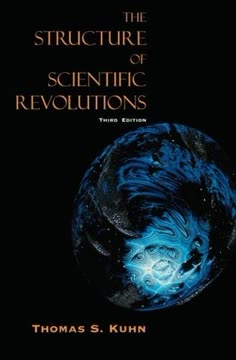Key Takeaways
1. The Two Cultures: A Divide Between Sciences and Humanities
In our society (that is, advanced western society) we have lost even the pretence of a common culture. Persons educated with the greatest intensity we know can no longer communicate with each other on the plane of their major intellectual concern.
Cultural divide defined. The "two cultures" refer to the intellectual and social divide between scientists and literary intellectuals. This separation has led to a lack of communication and understanding between these two groups, resulting in a fragmented intellectual landscape.
Consequences of the divide. This cultural schism has far-reaching implications:
- Misinterpretation of the past and present
- Inability to address future challenges effectively
- Difficulty in making informed decisions on critical issues
- Hindrance to creative and intellectual progress
2. Scientific Illiteracy Among Literary Intellectuals
Once or twice I have been provoked and have asked the company how many of them could describe the Second Law of Thermodynamics. The response was cold: it was also negative. Yet I was asking something which is about the scientific equivalent of: Have you read a work of Shakespeare's?
Widespread scientific ignorance. Snow highlights the alarming lack of scientific knowledge among literary intellectuals, using the Second Law of Thermodynamics as an example. This ignorance is not merely a trivial gap in knowledge but represents a fundamental disconnect from the scientific worldview.
Implications of scientific illiteracy:
- Inability to engage with crucial scientific concepts
- Misunderstanding of technological advancements
- Limited appreciation for scientific achievements
- Difficulty in making informed decisions on science-related policy issues
3. The Industrial Revolution and Its Misunderstanding
Industrialisation is the only hope of the poor. I use the word 'hope' in a crude and prosaic sense. I have not much use for the moral sensibility of anyone who is too refined to use it so.
Misinterpretation of progress. Many intellectuals, particularly those from literary backgrounds, have misunderstood or actively resisted the industrial revolution. This resistance stems from a romanticized view of the past and a failure to recognize the tangible benefits of industrialization.
Benefits of industrialization:
- Improved living standards for the masses
- Increased life expectancy
- Better access to education and healthcare
- Economic growth and opportunities for social mobility
4. The Scientific Revolution: A Path to Global Progress
The scientific revolution is the only method by which most people can gain the primal things (years of life, freedom from hunger, survival for children)—the primal things which we take for granted and which have in reality come to us through having had our own scientific revolution not so long ago.
Global transformation. The scientific revolution offers a path to addressing fundamental human needs on a global scale. It represents the most effective means of improving living conditions for billions of people worldwide.
Key aspects of the scientific revolution:
- Application of scientific knowledge to solve practical problems
- Technological advancements in agriculture, medicine, and industry
- Rapid dissemination of knowledge and skills
- Potential to bridge the gap between rich and poor nations
5. Education Reform: Bridging the Cultural Divide
There is only one way out of all this: it is, of course, by rethinking our education.
Educational transformation. Snow argues that reforming education is crucial to bridging the gap between the two cultures. This involves creating a more balanced curriculum that incorporates both scientific and humanistic knowledge.
Proposed educational reforms:
- Introducing science and technology courses for humanities students
- Incorporating humanities courses in scientific education
- Promoting interdisciplinary studies and research
- Emphasizing the practical applications of scientific knowledge
- Developing critical thinking skills across all disciplines
6. The Social Condition: Addressing Global Inequality
We cannot avoid the realisation that applied science has made it possible to remove unnecessary suffering from a billion individual human lives—to remove suffering of a kind, which, in our own privileged society, we have largely forgotten, suffering so elementary that it is not genteel to mention it.
Global responsibility. Snow emphasizes the moral imperative to address global inequality through the application of scientific knowledge. This requires acknowledging the disparities between developed and developing nations and taking concrete action to improve living conditions worldwide.
Key areas for intervention:
- Improving healthcare and reducing infant mortality
- Enhancing food production and distribution
- Providing access to clean water and sanitation
- Developing sustainable energy sources
- Promoting education and skill development in developing countries
7. Molecular Biology: A New Frontier for Cultural Integration
This branch of science is likely to affect the way in which men think of themselves more profoundly than any scientific advance since Darwin's—and probably more so than Darwin's.
Bridging the divide. Molecular biology represents a promising field for integrating scientific and humanistic perspectives. Its study offers insights into the fundamental nature of life and has profound implications for our understanding of human existence.
Significance of molecular biology:
- Provides insights into the nature of genetic inheritance
- Offers potential for medical breakthroughs
- Raises important ethical and philosophical questions
- Accessible to those without extensive mathematical training
- Combines visual and conceptual thinking, appealing to both scientific and artistic minds
8. The Individual vs. Social Condition: Balancing Perspectives
We should most of us agree, I think, that in the individual life of each of us there is much that, in the long run, one cannot do anything about. Death is a fact—one's own death, the deaths of those one loves. There is much that makes one suffer which is irremediable: one struggles against it all the way, but there is an irremediable residue left.
Dual perspective. Snow distinguishes between the individual condition, which includes inevitable personal suffering, and the social condition, which can be improved through collective action and scientific progress.
Balancing individual and social perspectives:
- Acknowledging the limits of personal control over one's fate
- Recognizing the potential for social improvement through science and technology
- Cultivating empathy and social responsibility
- Striving for personal growth while contributing to societal progress
9. Debunking the Pre-Industrial Eden Myth
No one in his senses would choose to have been born in a previous age unless he could be certain that he would have been born into a prosperous family, that he would have enjoyed extremely good health, and that he could have accepted stoically the death of the majority of his children.
Historical reality. Snow challenges the romanticized view of pre-industrial society, emphasizing the harsh realities of life for the majority of people throughout history. This perspective is crucial for understanding the true impact of scientific and industrial progress.
Realities of pre-industrial life:
- Short life expectancy
- High infant and maternal mortality rates
- Frequent famines and malnutrition
- Limited social mobility
- Lack of basic healthcare and education
10. The Necessity of Scientific Progress for Human Dignity
It seems to me better that people should live rather than die: that they shouldn't be hungry: that they shouldn't have to watch their children die. Here, if anywhere, we are members one of another.
Moral imperative. Snow argues that scientific progress is not just a matter of intellectual curiosity or economic growth, but a fundamental requirement for human dignity and well-being.
Key aspects of scientific progress for human dignity:
- Alleviating unnecessary suffering
- Providing basic necessities for all
- Empowering individuals through education and opportunity
- Fostering global cooperation and understanding
- Addressing existential threats to humanity (e.g., climate change, pandemics)
Last updated:
Review Summary
The Two Cultures by C.P. Snow explores the divide between scientific and literary intellectuals, highlighting their mutual incomprehension and its societal impact. While some readers find Snow's arguments dated and overly simplistic, others appreciate his insights into the educational and cultural gaps between disciplines. The book's central thesis remains relevant, sparking discussions about interdisciplinary collaboration and scientific literacy. However, critics note that Snow's perspective is rooted in his personal experiences and may oversimplify complex issues. The introduction by Stefan Collini is widely praised for providing valuable historical context.
Similar Books
Download PDF
Download EPUB
.epub digital book format is ideal for reading ebooks on phones, tablets, and e-readers.











